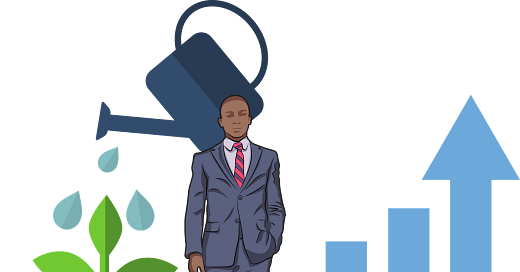Happy Tuesday kings.
There’s so much to talk about on the geopolitics and markets front and we’ll chat on that later this week but today I figured I would put out a practical guide to saving more money.
Historically, I’ve always scoffed at the old adage of “making your coffee at home” or “budgeting”, I’d tend to opt for simply trying to make more money to the point I wouldn’t notice.
Generally this is still my advice — I enjoy nice things and a certain lifestyle, however I think there’s always room to trim some fat to optimize for long term wealth and security. I want to stress I am fairly easy going — and will spend impulsively if I want to or if I think it’s something I need but at a certain point it starts to get a bit ridiculous.
In the past two years my view on this has changed slightly for a few reasons I will talk about today. Truth is, there’s some great impacts of being a bit more calculated in what you are willing to spend your money in the current macro environment regardless of how much money you make (unless you’re already worth $5M+).
As we get into the full swing of summer many Americans and folks around the world are conscious of high consumer costs l, a weakening job market, and inflation. Reality is even if you’re making $150,000 depending on your lifestyle, you’re still feeling a bit of pressure month to month even if you’re not constantly adding new things to spend. If you live in a major city you may even be breaking even at $200k+ — it’s really not that hard to do.
The price of basic goods like eggs, foil, detergent, coffee, and other items just keeps creeping higher and higher. Services, delivery, and memberships are climbing, and it seems like new fees and “tip” prompts are being pushed harder than ever anywhere you go.
Americans feel they’d need to earn approximately $233,000 a year on average to be secure or comfortable with their finances, a new Bankrate survey finds. To be rich and achieve financial freedom, Americans say they’d need to make about two times more: roughly $483,000 on average, according to the poll (Bankrate.com).
For perspective — I worked in NYC for 7 years — when I first got there at like 21 or 22 I was making $70K + bonus. $70K believe it or not was enough to get by — not super comfortably but still enough to get by — today I imagine that’s not really the case.
I left the city towards the tail end of Covid and now reside in the suburbs in the Tri State area where it’s not that much cheaper but still a bit better than the city. At 31 — I now have a wife and son and generally just more expenses. Quite thankful I put an enormous amount of time into my side hustle in my twenties since that makes up the bulk of my disposable or investable income throughout the year.
Even with a much higher base salary today I find myself pretty much netting out each month after rent, car, food, gym, utilities, stuff my for son/wife, and eating out/other things we do. Still — if I am relatively conservative each month (and not buying things like ammo, luxury items, or clothes I don’t need) I generally have a few thousand to invest or play with.
As you age though other costs begin to come up that can wrinkle your cash flow — this month I got a delayed bill from my accountant, an unexpected medical bill for my son, and a car tax payment for my town on the same day after apeing BTC/ETH with my free cash flow from my business. My goal is to always be comfortably saving or investing money each month — these random expenses can add a bit of pressure to that regimen and I am a bit OCD about having that cushion.
We’ve all heard
recount the classic conundrum of the NYC Managing Director who saves basically no money due to lifestyle inflation and absurd spending each month.Today I want to talk through areas that I have personally identified waste in — that is — areas where I am potentially vulnerable to lifestyle inflation or overspending for no good reason. The good news is — I’m a pretty simple guy. I like nice dinners, shooting/fishing (not cheap hobbies), and above all else — not worrying about little things like Ubers, trips to the grocery store, or small bills.
NOW is not the time you want to be getting into the habit of spending superfluously. First because there are going to be some excellent market opportunities for those with cash to take advantage of and second, because we have no clue what comes next on the economic or consumer front.
Things are getting more and more expensive and your dollar does not go as far. Just this morning I picked up regular two coffees and two croissants for $20.
Considering these areas will help you save money and generally feel better about your day to day financial health. By examining the areas I will talk about today you have the added benefit of tightening down the hatches as we enter an uncertain economic time as well, something that contributes to your peace of mind.
At the end of the day ask yourself this:
Do you want to be constantly stressed about cash flow and having a decent cushion at all times?
Or do you want to make some practical moves to ensure you have extra cash to invest, save, or spend how you’d like?
Let’s get into it.
“Many people take no care of their money till they come nearly to the end of it, and others do just the same with their time.”
– Johann Wolfgang von Goethe




